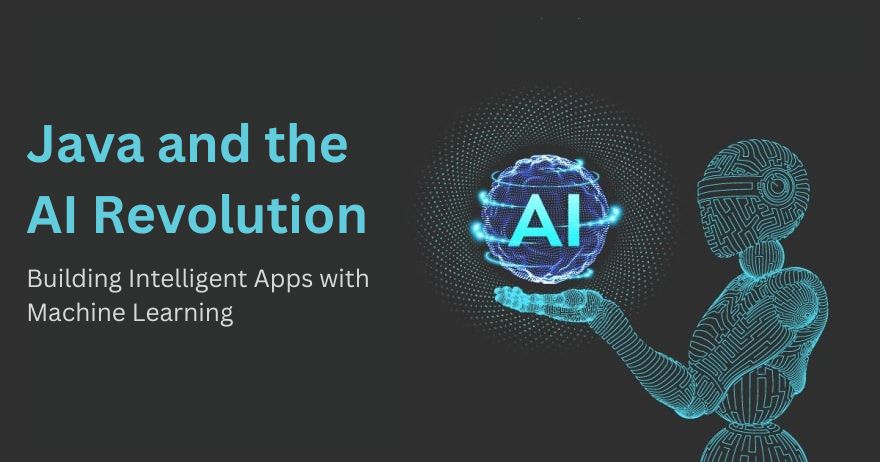Java and the AI Revolution: Building Intelligent Apps with Machine Learning
Are you ready to bring your app idea to life?
Hire machine learning developers for your business
Hiring machine learning developers is pivotal for effective, modified, and streamlined arrangements customized to your business. It is a cost-effective investment to remain at the forefront of technological advancements because their expertise ensures faster problem resolution, seamless integration, scalability, and compliance with data security standards.
Why Java for AI Development?
- Efficiency and Scalability: Java's capacity to deal with huge-scope applications and convey elite execution is vital for AI arrangements managing enormous datasets and complex calculations.
- Local area Backing: Java's broad local area support implies admittance to an abundance of information and assets. Engineers can use shared encounters and cooperative critical thinking to defeat AI improvement challenges.
- Security: In the domain of AI, where information security is the principal, Java's strong security highlights give a dependable climate for creating applications that handle delicate data.
Recruiting AI Engineers
To leave on the AI insurgency with Java, it is crucial to have gifted Machine Learning designers. These experts get skills in both Java, AI and ML, guaranteeing a consistent incorporation of clever elements into your applications. Whether it's proposal frameworks, prescient investigation, or PC vision, the right group can transform your simulated intelligence goals into the real world.
What Java Libraries Are Used In AI Programming?
Java is a versatile programming language that tracks down application across different spaces, including AI. Machine learning algorithms, natural language processing, and other AI-related tasks are commonly implemented with the help of several Java libraries and frameworks in AI programming.
- Weka: Comprehensive set-up of AI algorithms for information mining tasks. Used for educational, research, and practical applications in creating AI models.
- Deeplearning4j: Deep learning library for Java, suitable for tasks like image and speech recognition, natural language processing, and anomaly detection.
- Apache OpenNLP: Natural language processing library for various language-handling tasks like tokenization, sentence segmentation, part-of-speech tagging, and named entity recognition.
- Deep Learning for Java (DL4J): Machine learning library for Java supporting deep learning for tasks such as image recognition and natural language processing.
- Java-ML: AI library providing algorithms for data mining and AI tasks including classification, regression, and clustering.
- Encog: High-level AI framework for Java supporting neural networks, genetic algorithms, and other AI techniques for applications involving predictive modeling, data analysis, and optimization.
- MALLET: Natural language processing toolkit based on Java, useful for text classification, topic modeling, and data extraction.
- JOONE: Open-source neural network system for Java, used in applications requiring brain network capabilities like pattern recognition and forecasting.
How Do Machine Learning Developers Enhance Your Business?
- Brilliant Applications: ML engineers create intelligent applications that learn and improve over time, making better decisions.
- Automated Cycles: They automate repetitive tasks, saving time and reducing errors, allowing employees to focus on more strategic and creative aspects of their work.
- Predictive Data: ML developers build systems based on historical data to predict future trends, aiding informed decision-making and future planning.
- Advanced Efficiency: By integrating machine learning, processes become more efficient, accomplishing tasks faster and with fewer resources.
- Cost Savings: ML developers create personalized experiences, analyze customer behavior, and tailor services, improving customer satisfaction and reducing costs.
- Data Security: ML developers implement advanced security measures using AI algorithms to detect and prevent security threats.
- Cost Reduction: Automation and efficiency improvements lead to cost savings, enabling organizations to achieve more with fewer resources.
- Advantages over Competitors: Implementing ML provides a competitive edge, allowing organizations to offer innovative solutions and services compared to competitors.
- Versatility to Change: ML systems can adapt to changes and new information, crucial in dynamic business settings where things are constantly changing.
- Customer Satisfaction: Personalized services, faster response times, and improved efficiency contribute to higher customer satisfaction.
- Informed Decision Making: Leaders can use valuable insights from machine learning to make well-informed decisions based on real trends and patterns.
- Upgraded Efficiency: Automation and streamlining processes through AI contribute to increased overall efficiency, allowing employees to focus on high-value tasks.
Conclusion
As Java expands its capacities into the AI scene, designers have a strong toolbox for making wise applications. The cooperative energy among Java and AI is opening additional opportunities and changing how we collaborate with innovation. To compete in the current AI race, consider hiring machine learning developers who can harness the maximum capacity of Java in building intelligent applications that shape what's in store. Java will serve as your guide as you embrace the AI revolution.


